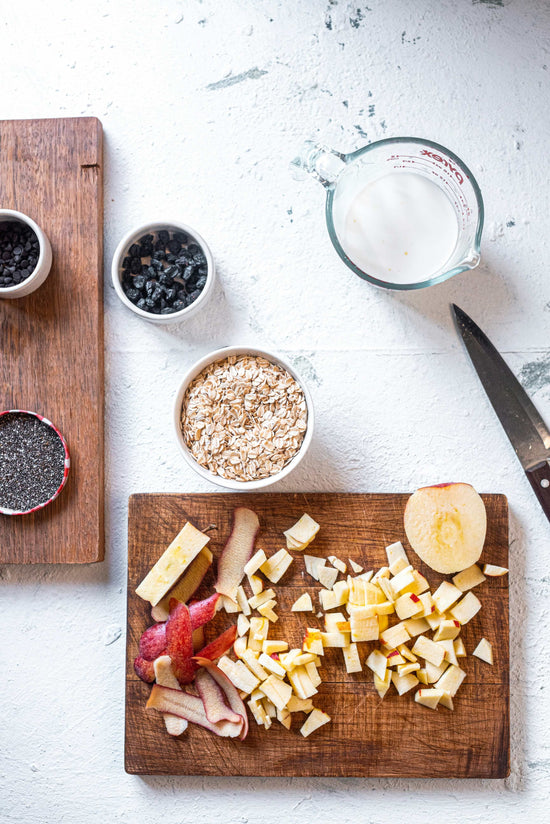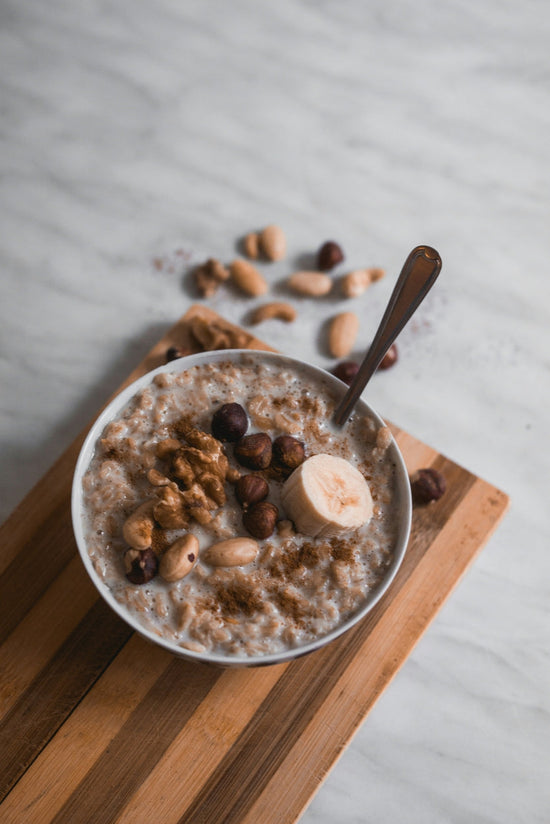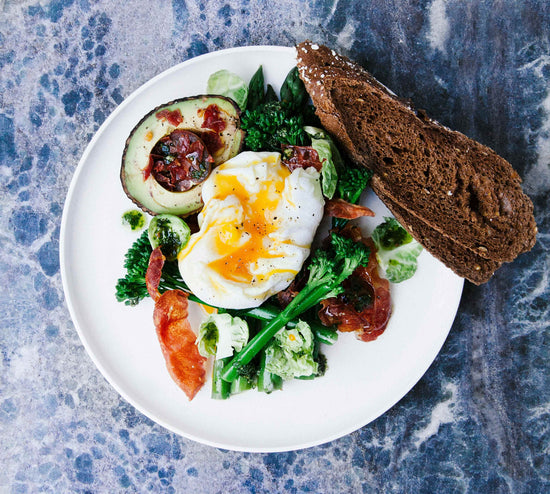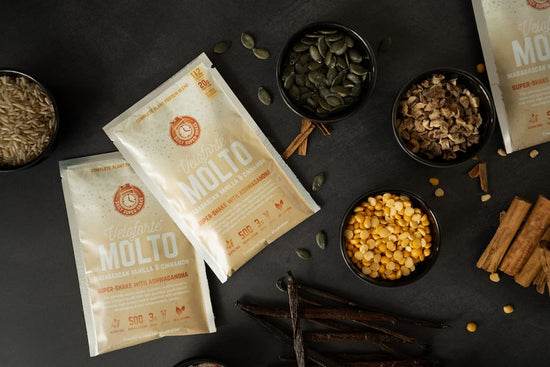Cholesterol is a substance that plays a crucial role in our bodies, but when levels are too high, it can pose serious health risks. Understanding the impact of cholesterol on our health is the first step in making dietary changes to reduce cholesterol levels.
Understanding Cholesterol and Its Impact on Health
Cholesterol is a fascinating and complex substance that plays a crucial role in our overall health. Our bodies naturally produce this waxy substance, which is vital for various physiological functions. Not only is cholesterol essential for the production of hormones and vitamin D, but it also plays a key role in the digestion of fats, ensuring that our bodies can absorb necessary nutrients effectively.
Despite its importance, maintaining the right balance of cholesterol is critical. When cholesterol levels in the blood become elevated, it can have detrimental effects on our health, particularly in relation to heart disease and other cardiovascular issues.
The Role of Cholesterol in the Body
Cholesterol's significance goes beyond its reputation as a mere "bad" substance. In fact, cholesterol is a multifaceted compound that serves as a building block for cell membranes, contributing to the structural integrity and function of our cells.
Furthermore, cholesterol acts as a precursor for the synthesis of bile acids, which play a crucial role in the digestion and absorption of fats in the body. Additionally, cholesterol is a key component in the production of various hormones, including cortisol and sex hormones, which are essential for regulating numerous bodily processes.
The Difference Between Good and Bad Cholesterol
Understanding the distinction between high-density lipoprotein (HDL) cholesterol, known as "good cholesterol," and low-density lipoprotein (LDL) cholesterol, referred to as "bad cholesterol," is essential in comprehending cholesterol's impact on our health. HDL cholesterol functions as a scavenger, helping to remove excess cholesterol from the bloodstream and transport it to the liver for excretion. On the other hand, LDL cholesterol can accumulate in the arteries, forming plaque that can restrict blood flow and increase the risk of cardiovascular issues.
Health Risks Associated with High Cholesterol
High levels of cholesterol in the blood can have serious health implications, particularly in relation to cardiovascular diseases.
Elevated cholesterol levels contribute to the development of atherosclerosis, a condition characterised by the buildup of plaque in the arteries. This can narrow the arteries, impeding blood flow and increasing the risk of heart attacks and strokes. Furthermore, high cholesterol levels can strain the heart, potentially leading to various cardiovascular complications if left unmanaged.
Dietary Changes to Lower Cholesterol
A balanced diet plays a crucial role in maintaining healthy cholesterol levels. By making smart food choices, you can actively lower your cholesterol and improve your overall health.
When it comes to managing cholesterol levels, it's not just about what you avoid but also about what you include in your diet. In addition to steering clear of certain foods, incorporating specific nutrients can have a positive impact on your cholesterol profile.
The Importance of a Balanced Diet
A balanced diet should include a variety of nutrient-rich foods. Focus on consuming fruits, vegetables, whole grains, lean proteins, and healthy fats. Avoid foods high in saturated and trans fats, as they can raise LDL cholesterol levels.
Furthermore, incorporating plant sterols and stanols into your diet can help lower cholesterol levels. These compounds, found in small amounts in nuts, seeds, and vegetable oils, work by blocking the absorption of cholesterol in the gut, leading to reduced LDL levels over time.

Foods to Avoid for Lower Cholesterol
To lower your cholesterol, it's important to limit your intake of saturated fats found in red meat, full-fat dairy products, and certain oils, such as coconut and palm oil. Trans fats, commonly found in processed foods and baked goods, should also be avoided.
Additionally, it's crucial to be mindful of hidden sources of cholesterol-raising ingredients, such as high-fructose corn syrup and refined carbohydrates. These ingredients can contribute to inflammation and oxidative stress, which can negatively impact cholesterol levels and overall heart health.
The Role of Fiber in Lowering Cholesterol
Fibre is a powerful tool in lowering cholesterol levels. Soluble fibre, found in foods like oats, barley, legumes, and fruits, helps reduce LDL cholesterol by binding to it and carrying it out of the body. Aim to incorporate these foods into your daily meals.
Moreover, insoluble fibre, present in foods like whole wheat, nuts, and vegetables, plays a crucial role in promoting overall digestive health. By supporting healthy digestion and regular bowel movements, insoluble fibre indirectly contributes to better cholesterol management and heart health.
Heart-Healthy Foods That Lower Cholesterol
By incorporating specific heart-healthy foods to lower cholesterol into your diet, you can actively combat high cholesterol levels and improve your heart health.
One key aspect of maintaining a heart-healthy diet is to focus on consuming foods that are not only delicious but also beneficial for your overall well-being. By making thoughtful choices in your daily meals, you can take significant steps towards reducing cholesterol levels and promoting a healthy heart.
Fruits and Vegetables for Lower Cholesterol
Fruits and vegetables are packed with heart-healthy nutrients and antioxidants. Berries, citrus fruits, leafy greens, and cruciferous vegetables, like broccoli and cauliflower, are particularly beneficial in reducing cholesterol levels. These colourful and nutrient-dense foods not only add variety and flavour to your meals but also provide essential vitamins and minerals that support your cardiovascular system.
In addition to their cholesterol-lowering properties, fruits and vegetables are also rich in dietary fibre, which aids in digestion and helps maintain a healthy weight. Including a diverse array of fruits and vegetables in your diet can also contribute to reducing inflammation in the body, further benefiting your heart health.

Whole Grains and Cholesterol
Whole grains, such as oats, brown rice, and whole wheat bread, provide a significant amount of fibre that can help lower LDL cholesterol levels. They also contain nutrients like B vitamins and antioxidants that support heart health. By incorporating whole grains into your meals, you not only add texture and flavour but also enhance the nutritional value of your diet.
Furthermore, whole grains offer sustained energy release, keeping you feeling full and satisfied for longer periods. This can be particularly beneficial for individuals looking to manage their cholesterol levels while maintaining a balanced and fulfilling diet.
Lean Proteins and Their Benefits
Choosing lean sources of protein, such as skinless poultry, fish, and legumes, can help lower cholesterol. These lean proteins are low in saturated fats and provide essential amino acids and omega-3 fatty acids that support heart health. By incorporating a variety of lean proteins into your meals, you can enjoy a diverse range of flavours and textures while prioritising your cardiovascular well-being.
Additionally, lean proteins play a crucial role in muscle repair and maintenance, supporting overall physical health and vitality. By including these nutrient-rich foods in your diet, you can not only lower cholesterol levels but also promote muscle strength and endurance, contributing to a holistic approach to heart health.
Incorporating Cholesterol-Lowering Foods into Your Diet
Knowing which foods to choose is only the first step. To effectively lower cholesterol, it's essential to incorporate these foods into your daily diet and make them a regular part of your meals.
Creating a Meal Plan for Lower Cholesterol
Start by creating a meal plan that includes a variety of heart-healthy foods. Plan your meals and snacks to ensure you're getting a good balance of nutrients and keeping cholesterol-lowering foods at the forefront of your diet.
Healthy Snack Ideas for Lower Cholesterol
When hunger strikes between meals, opt for snacks that can help lower cholesterol. Some healthy options include nuts, seeds, fresh fruit, and yoghurt. These snacks provide essential nutrients without contributing to elevated cholesterol levels.
Veloforte’s oat snack bars are packed with super seeds, juicy fruits and gluten free oats. Delivering 25% of your daily fibre, they’re a great source of plant protein to help you feel fuller for longer, without effecting cholesterol levels.
Tips for Eating Out While Maintaining a Low-Cholesterol Diet
Eating out doesn't have to derail your efforts to lower cholesterol. When dining out, choose restaurants that offer heart-healthy options. Look for grilled or roasted lean proteins, whole grain sides, and plenty of fruits and vegetables.
Lowering cholesterol through dietary changes takes time and commitment. By understanding the role of cholesterol in our bodies, making smart food choices, and incorporating cholesterol-lowering foods into our diet, we can take control of our health and reduce the risk of heart disease.
Why Veloforte?
By harnessing nature’s finest ingredients, we craft real food that really works by delighting your senses and enhancing your daily physical performance, productivity & wellness, naturally.
No compromises, digestive issues, fake flavours, sickly gloop or ingredients you can't spell (or digest). Instead, beautifully balanced natural ingredients, incredible flavours and enjoy total confidence in your foundational health, well-being and performance.
For athletes and adventurers everywhere, our range is fit for purpose and fit for body... created to help you #fuelbetter.











